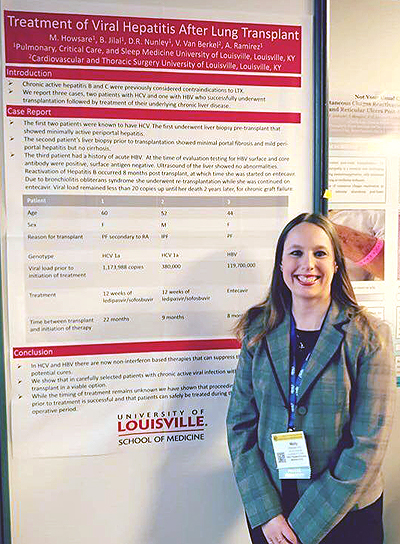Research Experience
 ► GOALS
► GOALS
Under the direction of a faculty research mentor, the fellow will learn the design, conduct and interpretation of research studies including research methodology. Evidence of completion of a given project will be presentation of an abstract at a regional or national meeting and authorship of a publication stemming from the research.
The fellow will also be required to present their findings at the Pulmonary/Critical Care Medicine Research conference once per year. In addition to learning to give scientific presentations and write a scientific publication, the fellows should also become familiar with the process of writing research grants.
The fellows are not required to obtain their own funding, but they should be involved in the application for grant funds made by their mentors. It is important for the fellows to become involved in and understand all the facets of academic research so they will be prepared to pursue a career in academic medicine.
► TEACHING METHODS
The structure of the fellow’s research experience will vary according to the individual fellow’s research interests.
The fellow, in conjunction with their research mentor, is responsible for designing a specific research project. This should include a written set of specific goals and a time-line for completion of the project within the given amount of research time available to the fellow. The fellow and their mentor should periodically review these goals and the fellow's progress.
Research methodology and interpretation will be learned first hand through the performance of experimental studies. These experiences will be supplemented by attendance at a variety of clinical and research conferences that will assist the fellow in understanding the broader implications of their research findings.
In addition, fellows may elect to participate in structured educational experiences to gain additional skills.
A formal evaluation of the research progress of the fellow will be made twice per year by the Program Director.